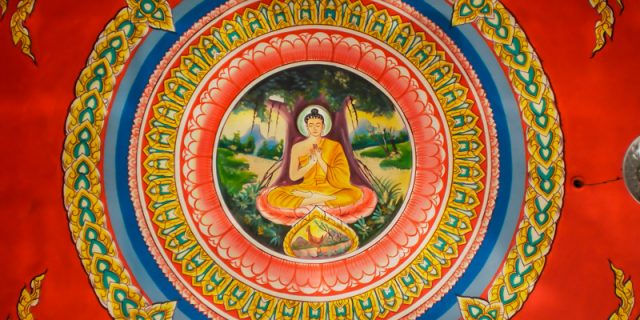
Ramesh Balsekar, an Advaita Vedanta teacher and former disciple of Sri Nisargadatta Maharaj, repeatedly claimed that: “Living means, from moment to moment, never knowing whether the next moment is going to bring peace, pleasure, or pain.”
According to Ramesh, “it’s all up to God,” that is, up to “God’s Will.” There’s no autonomous doer, there’s only “Thy will be done.” Yet, he also states that this is only his concept. The concept that made him happy. The thing that gave him peace of mind.

He often reminds us that his job as a Guru is to explain to his disciples that what he conveys is just a concept, his concept, and that this particular concept made him stop “searching for truth” and finally — happy.
Ramesh invites his disciples to “test his concept,” which means: genuinely accept his concept, for a while anyway — his concept that one “should surrender to God’s Will,” that there’s no separate doer, no independent ego, and that everything is done by “Cosmic Law.”
But when asked how to surrender really, authentically, he replies that that also is “up to one’s destiny or God’s divine Will.” In fact, one can’t do a darn thing to invoke or realize capitulation.
Now, that’s of course an absurd answer. It’s utterly absurd, because it leaves us with empty hands. We seem to circle around juggling with an unsolvable paradox.
But there’s more to it.
When we think-through Ramesh’s concept, we notice that it actually urges us “to surrender to the fact that we are not able to surrender.” And this of course resembles the well-known paradox of “the desire not-to-desire.” A contradiction in terms, a concept that makes no logical sense at all.
In fact, it looks like we’re actually searching to find the final concept. The concept of concepts so to speak. The over, super, or meta concept that will blast away our doubts, and bestow us with everlasting happiness and peace of mind.
Yet, someday, we may come to the recognition that the supreme concept is “the concept of having no concepts at all.” But that concept makes no sense being thought. It can be transmitted verbally, and even grasped intellectually, it’s in a certain way rigorously logical, but finally, it can only be lived.
















